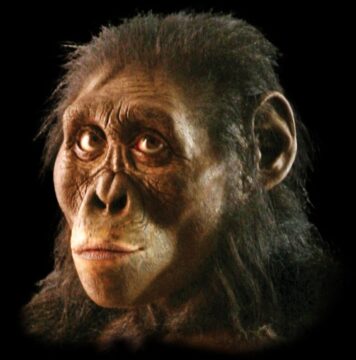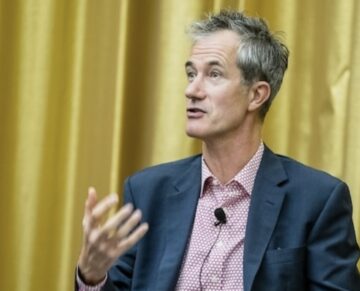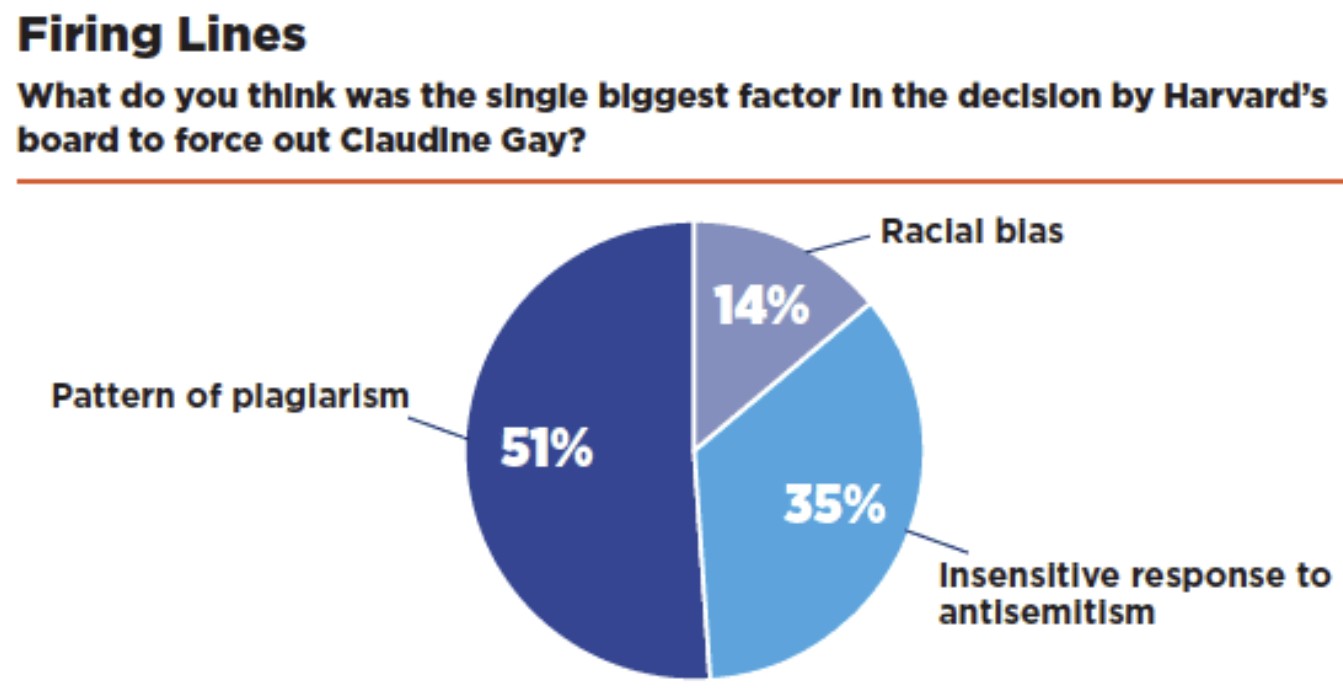Gideon Lewis-Kraus at The New Yorker:
 While one segment of Silicon Valley lamented the perpetual absence of flying cars, another, it turns out, was quietly building them—or, at least, something flying-car adjacent. Just three months after the Founders Fund manifesto appeared, a Canadian inventor named Marcus Leng invited his neighbors and a couple of friends to his rural property, north of Lake Ontario. Leng was in his early fifties, with a bowl cut of coarse graying hair. He instructed his guests to park their (conventional) cars in a row and cower behind them. He strapped on a helmet and boarded a device that he’d built in his basement. It had a narrow single-seat chassis and two fixed wings, one in front and one in back, each with four small propellers. It was at once sleek and ungainly, as if a baby orca had been hitched to two snowplows. Observers described it, for lack of a better comparison, as looking like a U.F.O. Leng called it the BlackFly.
While one segment of Silicon Valley lamented the perpetual absence of flying cars, another, it turns out, was quietly building them—or, at least, something flying-car adjacent. Just three months after the Founders Fund manifesto appeared, a Canadian inventor named Marcus Leng invited his neighbors and a couple of friends to his rural property, north of Lake Ontario. Leng was in his early fifties, with a bowl cut of coarse graying hair. He instructed his guests to park their (conventional) cars in a row and cower behind them. He strapped on a helmet and boarded a device that he’d built in his basement. It had a narrow single-seat chassis and two fixed wings, one in front and one in back, each with four small propellers. It was at once sleek and ungainly, as if a baby orca had been hitched to two snowplows. Observers described it, for lack of a better comparison, as looking like a U.F.O. Leng called it the BlackFly.
Leng, who had been flying since he was a teen-ager, had long dreamed of the “perfect aircraft”—something “that didn’t require a pilot’s license, and could take off or land anywhere.” He’d paid close attention to past designs but suspected that their propulsion systems were too heavy, too complex, and too unresponsive.
more here.

 The two weeks spanning the O. J. Simpson verdict and Louis Farrakhan’s Million Man March on Washington were a good time for connoisseurs of racial paranoia. As blacks exulted at Simpson’s acquittal, horrified whites had a fleeting sense that this race thing was knottier than they’d ever supposed—that, when all the pieties were cleared away, blacks really were strangers in their midst. (The unspoken sentiment: And I thought I knew these people.) There was the faintest tincture of the Southern slaveowner’s disquiet in the aftermath of the bloody slave revolt led by Nat Turner—when the gentleman farmer was left to wonder which of his smiling, servile retainers would have slit his throat if the rebellion had spread as was intended, like fire on parched thatch. In the day or so following the verdict, young urban professionals took note of a slight froideur between themselves and their nannies and babysitters—the awkwardness of an unbroached subject. Rita Dove, who recently completed a term as the United States Poet Laureate, and who believes that Simpson was guilty, found it “appalling that white people were so outraged—more appalling than the decision as to whether he was guilty or not.” Of course, it’s possible to overstate the tensions. Marsalis invokes the example of team sports, saying, “You want your side to win, whatever the side is going to be. And the thing is, we’re still at a point in our national history where we look at each other as sides.”
The two weeks spanning the O. J. Simpson verdict and Louis Farrakhan’s Million Man March on Washington were a good time for connoisseurs of racial paranoia. As blacks exulted at Simpson’s acquittal, horrified whites had a fleeting sense that this race thing was knottier than they’d ever supposed—that, when all the pieties were cleared away, blacks really were strangers in their midst. (The unspoken sentiment: And I thought I knew these people.) There was the faintest tincture of the Southern slaveowner’s disquiet in the aftermath of the bloody slave revolt led by Nat Turner—when the gentleman farmer was left to wonder which of his smiling, servile retainers would have slit his throat if the rebellion had spread as was intended, like fire on parched thatch. In the day or so following the verdict, young urban professionals took note of a slight froideur between themselves and their nannies and babysitters—the awkwardness of an unbroached subject. Rita Dove, who recently completed a term as the United States Poet Laureate, and who believes that Simpson was guilty, found it “appalling that white people were so outraged—more appalling than the decision as to whether he was guilty or not.” Of course, it’s possible to overstate the tensions. Marsalis invokes the example of team sports, saying, “You want your side to win, whatever the side is going to be. And the thing is, we’re still at a point in our national history where we look at each other as sides.” Walnuts can
Walnuts can  Zeresenay Alemseged doesn’t remember the 1974 discovery of the famous fossil Lucy at Hadar in Ethiopia, because he was 5 years old, living 600 kilometers away in Axum. Later he saw Lucy’s name on cafes and taxis, but he knew little about her until he became a geologist working at the National Museum of Ethiopia. Then, she changed his life. In 2000, Alemseged was swept into Lucy’s orbit:
Zeresenay Alemseged doesn’t remember the 1974 discovery of the famous fossil Lucy at Hadar in Ethiopia, because he was 5 years old, living 600 kilometers away in Axum. Later he saw Lucy’s name on cafes and taxis, but he knew little about her until he became a geologist working at the National Museum of Ethiopia. Then, she changed his life. In 2000, Alemseged was swept into Lucy’s orbit:  Geoff Dyer: Yeah, it’s a little piece of self-encouragement. Because, you know, sometimes I’m sort of worried about my take on a given subject. Do I know enough about it? Take for example, my history of photography called The Ongoing Moment. I wrote that book because I wanted to find out about the history of photography. I wrote the book for the same reason that readers might later go to it.
Geoff Dyer: Yeah, it’s a little piece of self-encouragement. Because, you know, sometimes I’m sort of worried about my take on a given subject. Do I know enough about it? Take for example, my history of photography called The Ongoing Moment. I wrote that book because I wanted to find out about the history of photography. I wrote the book for the same reason that readers might later go to it. Granted, the social lives of viruses aren’t quite like those of other species. Viruses don’t post selfies to social media, volunteer at food banks or commit identity theft like humans do. They don’t fight with allies to dominate a troop like baboons; they don’t collect nectar to feed their queen like honeybees; they don’t even congeal into slimy mats for their common defense like some bacteria do. Nevertheless, sociovirologists believe that viruses do
Granted, the social lives of viruses aren’t quite like those of other species. Viruses don’t post selfies to social media, volunteer at food banks or commit identity theft like humans do. They don’t fight with allies to dominate a troop like baboons; they don’t collect nectar to feed their queen like honeybees; they don’t even congeal into slimy mats for their common defense like some bacteria do. Nevertheless, sociovirologists believe that viruses do  Saar Wilf is an ex-Israeli entrepreneur. Since 2016, he’s been developing a new form of reasoning, meant to transcend normal human bias.
Saar Wilf is an ex-Israeli entrepreneur. Since 2016, he’s been developing a new form of reasoning, meant to transcend normal human bias. The negative buzz over board challenges experienced by Harvard, Tesla and Boeing shows remarkably parallel problems over the same period. Harvard’s stumble is particularly educational for boards facing a governance crisis.
The negative buzz over board challenges experienced by Harvard, Tesla and Boeing shows remarkably parallel problems over the same period. Harvard’s stumble is particularly educational for boards facing a governance crisis. I
I